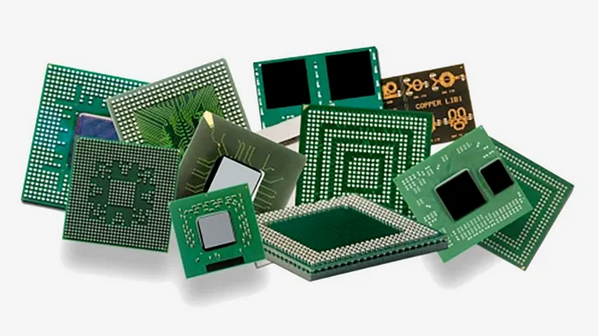InvestorPlace – Stock Market News, Stock Advice & Trading Tips
Vendors are selling fake Advanced Micro Devices, Inc. (NASDAQ:AMD) Ryzen chips on several e-commerce websites.
External link: https://www.theepochtimes.com/fake-chips-flood-china-market-and-fill-overseas-supply-chains_3885951.html
Fake AMD Ryzen Chips
Consumers reported buying AMD Ryzen processors on Amazon.com, Inc. (NASDAQ:AMZN) and eBay Inc (NASDAQ:EBAY), and receiving products that were clearly manufactured by different company.
There was one Reddit user who posted pictures of his AMD Ryzen 7 1700 processor purchase on Amazon, which looked legitimate at first. He then realized that the device was clearly developed by a different company as it was an Intel Celeron (NASDAQ:INTC) processor.
Another user posted images of a processor he bought from Amazon, which appeared to be real as it has the Ryzen markings. However, it is different as some of its features are clearly part of a different microchip.
The notches and overall integrated heatspreader (IHS) are not the ones that the Ryzen 7 1700 processor brings, and it only has the company label through a transparent sticker that makes it look like a different brand.
It is unclear whether these devices are being sold through Amazon directly or through a third-party vendor.
One of these users said that he reported the problem to Amazon and received a replacement that actually contained the correct device.
AMD stock fell 2.8% Tuesday, while AMZN shares rose 0.8% and EBAY stock fell 1%.
Also from www.zerohedge.com website:
China Economic Observer reported a chip agent revealed that to meet the growing demand, suppliers were no longer keeping their counterfeiting practices secret. Instead, they are openly creating separate production lines to expedite the sales of counterfeit or refurbished chips. Furthermore, businesses are no longer offering the shoddy products at half price. Many are being sold at full market value.
The agent identified two types of counterfeit chips. The first involves recycling used chips from e-waste by removing the logo and cleaning them for resale with new packaging. The second involves packaging the substandard chips from the regular production line and selling them as good products.
Not surprisingly, customers were often dissatisfied with the product’s performance, reliability, and durability. However, the deficiencies were not immediately evident until after the chips were used over time or under extreme conditions. At which point, it would be the customers or manufacturer of the final products who suffer a loss, while the fake chip providers often avoid troubles, according to the chip agent.
Small and Medium-sized Enterprises Are Most Affected
China has long relied on imported chips. Small and medium-sized enterprises are unable to directly order from overseas manufacturers due to the small quantities, and can only purchase through third-party distributors. Thus, small and medium-sized enterprises in China have become the largest buyers of fake chips, and also the largest group of victims.
For example, a small company once designed a simple data acquisition card. The debugging stage always showed abnormal results. It raised concerns about the design. But through the help of a chip disassembly company that compared it with an authentic chip purchased through proper channels, they found that the problem stemmed from the chip being fake.
Some of the Fake Chips Flowed Overseas
The commercial district of Huaqiangbei in Shenzhen, Guangdong, is well known for its counterfeit chip dealers. It has become the largest distribution center for integrated circuit products in Asia. While most of the chips produced there stay in China, many are believed to be filling overseas supply chains, especially through the exporting of Chinese electronic products. It prompts legal liability concerns that rarely get resolved.
Zhu Yicong, a senior equity partner at Yingke (Shenzhen) Law Firm, told Chinese state media that legal actions are rarely taken against China’s questionable chip manufacturers. This is despite how China’s laws consider it illegal to offer “substandard” or counterfeit products. But because the term “substandard” is ambiguous, independent examiners may be needed to prove the chips being sold are not genuine and reliable.
Another reason is that some buyers, due to supply shortages or cost-cutting, take a tacit attitude towards illegal chips, and deliberately mix the genuine chips with the fake ones, which encouraged the formation of a counterfeit industrial chain. Unfortunately, the end-users and consumers have to bear all the risks.
Authored by Winnie Han via The Epoch Times





Leave A Comment